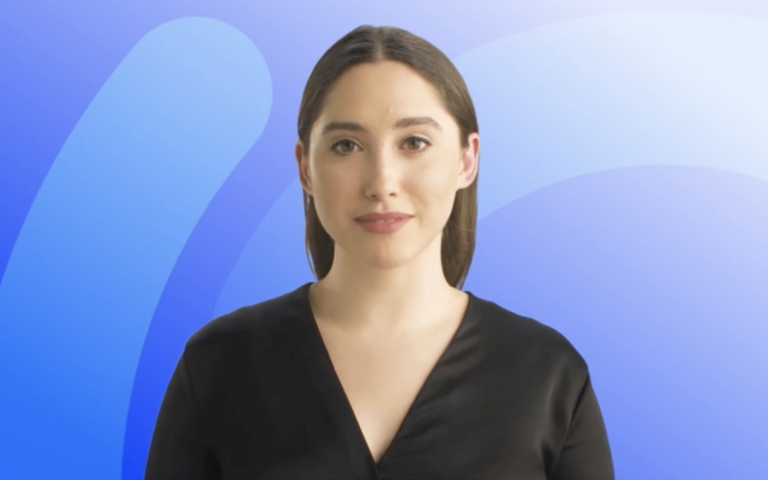AI company Synthesia, founded in 2017 by a team of international researchers and entrepreneurs, including Professor Lourdes Agapito (UCL Computer Science), has become a unicorn, meaning it has reached a market valuation of $1billion whilst still privately held.

Synthesia is a digital media platform that allows users to create professional AI-generated videos simply by typing text. The photo-realistic human faces and speech are indistinguishable from real video but without the need for cameras, actors, or expensive film studios.
Its technology was used to generate videos of David Beckham speaking nine languages as part of a 2019 global campaign raising awareness about malaria. It can now be used to create videos in 120 languages.
Along with Professor Agapito, Synthesia's co-founders are its CEO Victor Riparbelli, Professor Matthias Niessner (Technical University of Munich) and COO Steffen Tjerrild.
Since its launch, Synthesia has rapidly grown to be one of the top UK AI companies in terms of investment, revenue, and customer base.
On Wednesday, the London-based company, that employs around 200 staff, confirmed it had raised £71m ($90m) in a Series C round, achieving a post-money valuation of £792m ($1bn). This is the third unicorn to be announced in Europe in 2023.
Lourdes Agapito, a professor of 3D Vision at UCL and Synthesia co-founder, said: "I couldn't be prouder of the entire Synthesia team for our recent successful Series C, and to be part of this fantastic journey turning cutting-edge computer vision research into a useful and valuable product for our customers.
"Our long-term mission is to make video easy for everyone and this Series C will allow us to take the next steps in AI research as we change the way videos are produced, saving businesses time, money, and resources."
Creating photorealistic and expressive human faces in speech has long been a challenge in computer vision and graphics, and for decades this was only accessible to the film and TV industries through expensive 3D capture studios and visual effects artists in post-production.
Professor Agapito's research at UCL has pioneered methods of capturing 3D models of humans from 2D images, making low-cost AI video generation more accessible and forming an integral part of Synthesia's technology. Avatars are generated from capturing images of real actors whilst speaking and the results are indistinguishable from real video. In 2021 this 3D vision technology was a research impact case study, as part of UCL's REF 2021 submission.
The Series C funding round was led by leading venture capital firm Accel, an early investor in Facebook, Slack and Spotify, and joined by NVentures, the venture capital arm of U.S. chip giant NVIDIA.
Philippe Botteri, Accel's lead investor in Synthesia's Series C funding round, said: "Productivity can be improved because you are reducing the cost of producing the video to that of making a PowerPoint.
"Video is a much better way to communicate knowledge. When we think of the potential of the company and the valuation, we think about what it can return, and in the case of Synthesia, we're just scratching the surface."
UCL President & Provost, Dr Michael Spence, said: "Our academic entrepreneurs are among the best in the world, taking their game-changing technology to the commercial market to boost innovation and tackle societal challenges. Synthesia, co-founded by Lourdes Agapito, Professor at UCL, has developed AI technology that directly addresses a decades-long problem at the heart of the visual effects industry that spans several sectors.
"I'm proud that UCL academics are pioneering development in this technology on a worldwide scale for the benefit of all. I warmly congratulate the Synthesia team and look forward to seeing what they achieve next."
UCL has a strong track record in supporting and enabling academics, staff and students in entrepreneurship, offering a number of support structures that welcome and encourage ongoing co-operation between businesses and the Institution.






